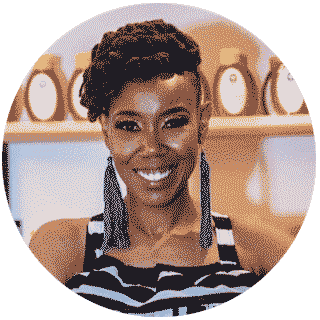Nobody ever says that starting and growing a business is easy. And for one young entrepreneur, the process was especially tough. Meet Mokgadi Mabela, founder of Native Nosi, a South African honey business.
“When I first started out, I didn’t have access to the same resources that many other entrepreneurs have,” says Mokgadi. “I am Black. I am a woman. And I am a beekeeper. Three big road-blocks to getting started.” But Mokgadi was undeterred.
She was committed not only to building a successful business of her own, but also to helping others realize their entrepreneurial dreams – other smart, enterprising South African women.
Her journey was slow and gradual at first. Mokgadi’s father had beehives on farms throughout the region, and from an early age, she sold the honey he made and bottled in their parents’ kitchen. Customers were mostly friends and neighbors. Soon, Mokgadi was selling more honey than her father could provide, and she invested in her own beehives.
In those early days, she took orders by email, tracked them on a spreadsheet, and delivered them by courier service. She bootstrapped the whole operation, growing gradually with word-of-mouth marketing. Soon, with the help of a friend, she was able to build a website and promote her products online. Business was good but limited. Native Nosi could be paid only with cash and wire transfers.
“We had maxed out on how much we could sell because we were cash-only. And when you’re a cash-only business, you’re not really considered to be a real business.”
Mokgadi knew that for Native Nosi to grow and be recognized as an important part of the local economy, she would have to accept new payment solutions like credit and debit cards.
“It sounds quite simple, adding a credit and debit card option to your check out process. But local banks require proof of high revenue before they will offer that service to a small business. I couldn’t reach their revenue threshold until I could accept credit cards, so I was stuck.”
Mokgadi didn’t stay stuck for long, though. She found a solution in Visa’s partner Yoco, a South African fintech company designed specifically to help smaller businesses. In just a few days, Mokgadi was accepting credit and debit cards online, and Native Nosi began to blossom.
With business now humming along, Mokgadi’s thoughts returned to supporting others like herself. How could she use her experience to support other women’s career ambitions? She had long envisioned a physical space – a place where customers could see, taste, and even feel the product she so carefully crafted. Where honey was at the center of a larger community. And where she would promote other female African entrepreneurs.
In July of 2020, amidst a global pandemic and an uncertain economy, Mokgadi opened a Native Nosi retail emporium in Pretoria. “My vision is not to sell more honey than anyone else. My vision – what I feel I owe to the world – is to give others like myself a platform to reach customers. To remove some of the roadblocks I faced.”

